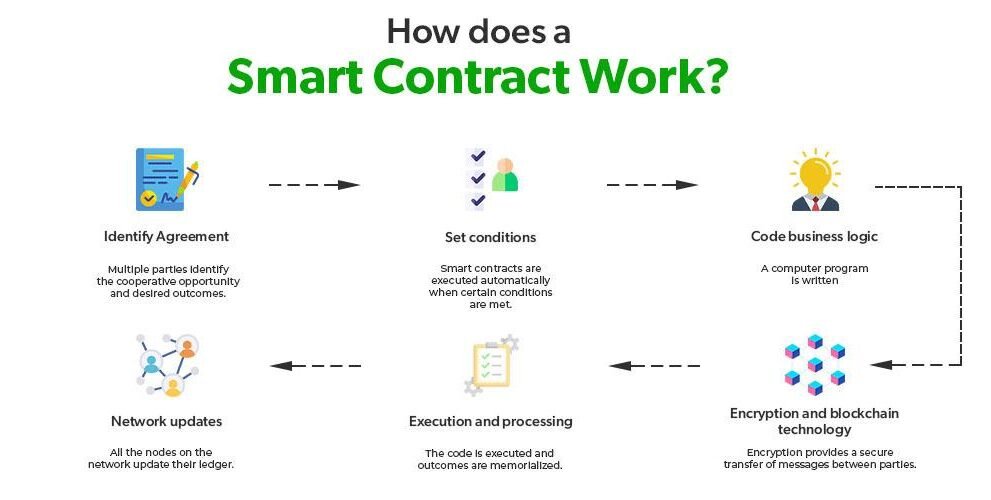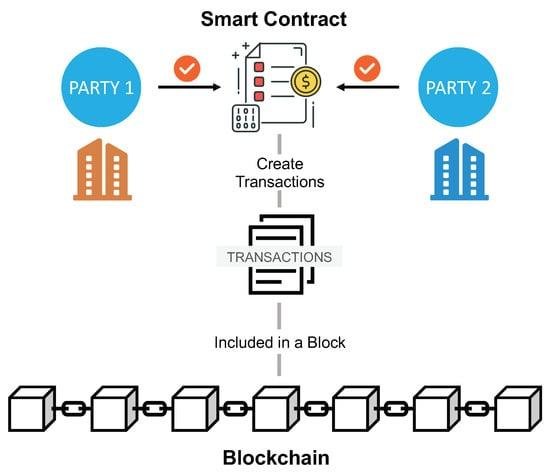Smart Contracts and the Future of Legal Ethics and Professional Responsibility

Introduction
In today’s fast-paced technological world, where innovation constantly changes the way we work, the rise of smart contracts is having a major impact on the legal field. These self-executing contracts, powered by blockchain technology, promise to improve efficiency and transparency. However, they also raise important questions about how legal ethics and responsibilities are handled. As the legal profession adapts to this digital transformation, it’s essential to understand how smart contracts might change the way lawyers approach their ethical duties. This article examines the convergence of technology and law, highlighting the challenges and duties that lawyers must navigate in the evolving digital era. How can legal professionals adjust their ethical standards to work with smart contracts? Join us as we explore the future of legal ethics in a technology-driven world.

The Intersection of Blockchain Technology and Legal Ethics
The introduction of blockchain technology and smart contracts is reshaping the ethical landscape of legal practice. Blockchain’s key principles—transparency, accountability, and immutability—align well with the core values of legal ethics. Smart contracts automate agreements without the need for intermediaries, which can reduce fraud and misconduct. By programming ethical guidelines directly into the code, legal professionals can ensure a higher standard of compliance and accountability, promoting integrity and fairness.
However, this technology also brings challenges. As automated systems replace human judgment, questions arise about responsibility, liability, and ethical decision-making. For instance, if a smart contract fails, who is responsible? Can an algorithm make moral decisions that are consistent with societal values? Lawyers must adapt to this new landscape, balancing the benefits of automation with the need for human oversight and empathy.
You May Also Like: How Smart Contracts Are Changing Contract Law and Enforcement

Navigating the Challenges of Accountability in Smart Contracts
The growing use of smart contracts raises complex questions about accountability. Traditional contracts rely on legal systems to hold parties accountable, but smart contracts operate outside of these frameworks. Who is responsible when a smart contract doesn’t work as expected? And what protections exist for users?
Some key challenges include:
- Complexity: Understanding and interpreting smart contracts requires specialized knowledge.
- Code Bugs: Errors in code can have unintended consequences, but determining accountability is unclear.
- Jurisdiction: The global nature of blockchain makes it difficult to apply local laws.
- Immutability: Once deployed, smart contracts cannot be easily changed, which limits options for resolving disputes.
To address these issues, legal professionals must work closely with technologists to develop new frameworks for accountability. Proactive strategies could include creating best practices, establishing consumer protection laws, and designing mechanisms for resolving disputes.
| Challenge | Consideration |
|---|---|
| Inherent Complexity | Smart contracts require specialized knowledge to interpret and understand. |
| Code Bugs | Errors in code can lead to unintended consequences, yet accountability remains murky. |
| Jurisdiction Issues | Global nature of blockchain can complicate legal authority and enforcement. |
| Immutable Nature | Once deployed, altering a contract can prove difficult and may limit resolution options. |

Enhancing Transparency and Trust through Smart Legal Agreements
Trust is a crucial element in legal transactions, and smart contracts offer a new way to build that trust. By using blockchain technology, smart contracts allow all parties to see and verify the terms of the agreement. This transparency reduces the risk of misunderstandings or manipulation, making it easier for everyone involved to understand their rights and obligations.
Additionally, smart contracts can automatically execute when certain conditions are met, eliminating the need for intermediaries. This not only speeds up the process but also reduces the chances of human error or bias. By embedding compliance checks into the code and recording actions on an immutable ledger, smart contracts also help ensure that legal professionals adhere to ethical standards, reinforcing trust between clients and lawyers.
As more people become familiar with these benefits, the demand for smart contracts will likely increase, leading to broader discussions about legal ethics in a digital age.

Recommendations for Integrating Smart Contracts into Legal Practice
To successfully integrate smart contracts into legal practice, lawyers must take a careful and thoughtful approach. First, education and training on blockchain technology and smart contracts should be a priority for legal professionals. Understanding how smart contracts work will help lawyers better advise clients and improve operational efficiency.
Law firms should also develop internal policies and guidelines for using smart contracts, ensuring they uphold ethical standards and professional responsibility. Continuous professional development focused on emerging technologies can help lawyers stay prepared for the challenges and opportunities that smart contracts bring.
Collaboration between legal experts and technologists is key. By working together, they can create best practices for smart contracts that align with existing regulations and ensure ethical compliance. Law firms should also engage clients in the process, helping them understand and consent to the use of smart contracts. This transparency will foster trust and promote ethical decision-making.
In Conclusion
The rise of smart contracts presents an exciting opportunity to improve efficiency, transparency, and trust in the legal system. However, with these advancements come important ethical responsibilities. As lawyers navigate this new terrain, they must adapt their practices to ensure that these technologies align with the core values of fairness, accountability, and integrity.
In the future, smart contracts will likely become a common part of legal transactions. It is essential that legal professionals embrace these technologies while also advocating for ethical standards that protect all parties involved. The future of the legal profession depends on our ability to combine innovation with responsibility. By working together and staying committed to ethical principles, we can help ensure that the future of law remains just, fair, and accountable in the digital age.

















































































































































































































































































































































































































































































































































